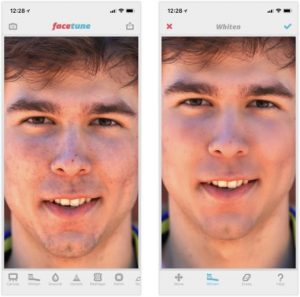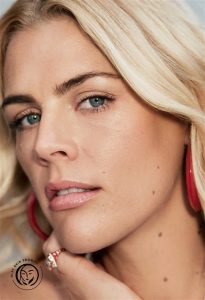Dear Brands, Ditch the Filter
Published on April 22, 2020, at 2:52 p.m.
by Macy Krauthamer.
Let’s be real — nearly everyone posting on social media is trying to present themselves in the best light possible to boost their “perceived attractiveness.” Users of Instagram, Facebook and Twitter all over the world are putting filters on photos to seem more attractive or likable. With the help of editing apps and filters, photo manipulation is practically a given now.

For brands, however, editing images can negatively influence their audiences. This is because digital transformations can misrepresent products, and imagery can stray so far from reality that it can be impossible for audiences to relate to. However, there is a light at the end of the (editing) tunnel: the “no Photoshop” movement. As body positivity became popularized, this trend started a shift in what consumers want to see when it comes to ads. People want more transparency and authenticity from brands. Thus, the creation of a #nofilter promise for brands began.
Among the first of few brands to start this movement was lifestyle retailer Aerie. In 2014, the brand began its no airbrushing, “Aerie Real” campaign. Aerie even started a hashtag, #AerieReal, for female shoppers to upload selfies of themselves — flaws and all.
According to a 2017 article, it’s worth applauding brands for trying something different, especially when the public response is positive. ASOS, a British online fashion company, stopped editing out models’ imperfections. Not long after, Missguided, a UK retail company, followed and “quietly uploaded photos of models to the site with stretch marks on display.”
It’s important to celebrate when a brand chooses to go against the photo-editing norms. People praised MAC Cosmetics in 2018, for uploading an unedited Instagram of a model’s facial hair. The beauty brand casually acknowledged that it’s natural for women to have hair on their upper lips.
In 2018, CVS launched its “Beauty in Real Life” campaign, with the goal of highlighting the realistic image of beauty through a “CVS Beauty Mark.” Shortly after, Dove announced its “No Digital Distortion Mark” campaign, a mark added to images to convince consumers that its “Real Beauty” campaign genuinely features real beauty.
In an effort to target American consumers, L’Occitane en Provence, an international beauty brand, rolled out a “#NoFilterNeeded” campaign in 2019, featuring its employees to celebrate women’s natural beauty. Around this same time, In The Style, a UK clothing company, vowed to stop retouching all photos on its site.
The idea of a brand promise is not new. This promise represents a genuine investment in serving the needs of customers to earn their confidence, loyalty and trust. Some brands just get it. They know success depends on understanding and listening to customer needs and innovating in response to market trends.

The latest brand to join the “no Photoshop” movement is Olay. The skincare brand has promised to say goodbye to digital modification in ads in the United States and Canada by 2021. This no retouch commitment will be done through the “Olay Skin Promise,” a logo that will be stamped on all ads symbolizing that models’ skin has not been retouched.
The brands mentioned aren’t the only ones taking part in the “no Photoshop” movement. However, more brands need to join in on the groundbreaking societal progression and take on the social responsibility to tackle the subconscious reinforcement to women that they have to look perfect all the time.
It is 2020, the era of body positivity and authenticity — time for brands to get real and ditch the filters.




